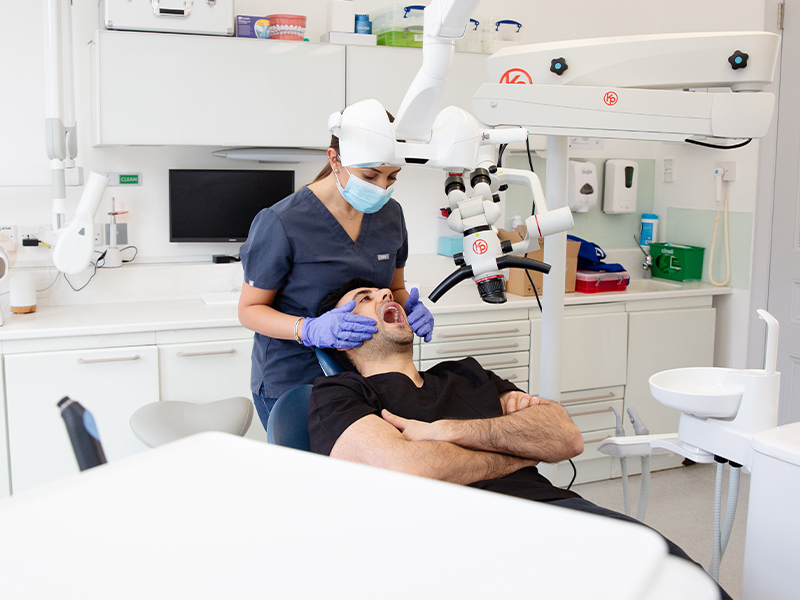Tooth decay, also known as dental caries, is the destruction of tooth enamel, the hard outer layer of your teeth. It is a result of harmful bacteria in your mouth producing acids that attack the enamel, leading to cavities.

Tooth decay, also known as dental caries, is the destruction of tooth enamel, the hard outer layer of your teeth. It is a result of harmful bacteria in your mouth producing acids that attack the enamel, leading to cavities.
Yes, symptoms can range from no apparent signs in the early stage to sensitivity, toothaches, visible holes or pits in the teeth, and even pain when biting down at more advanced stages. Dark spots on the teeth and bad breath may also be indicators of decay.
Tooth decay can affect anyone with teeth, including infants. However, individuals with poor oral hygiene, those who consume high-sugar diets, and people with reduced saliva flow are at higher risk.
Prevention is key and includes regular dental cleanings and exams, brushing with fluoride toothpaste, flossing daily, and reducing the intake of sugar. Dental sealants are also effective in preventing decay in the grooves of the teeth.
Treatments vary depending on the severity of decay. They range from fluoride treatments and fillings to crowns and root canals for more extensive decay. In severe cases, extraction may be necessary.
If you suspect you have tooth decay or wish to prevent it, it’s crucial to see a dentist. Book an appointment with Serio Dental today to get a thorough examination and personalised care plan to keep your smile healthy and beautiful.
Don’t wait for the pain to remind you
proactive care is the best care!
Decay develops when foods containing carbohydrates (sugars and starches) are left on the teeth. Bacteria that live in the mouth digest these foods, turning them into acids. The bacteria, acid, food debris, and saliva combine to form plaque, which clings to the teeth. The acids in plaque dissolve the enamel, creating holes in the teeth called cavities.
Absolutely. If left untreated, tooth decay can cause toothache, infection, and even tooth loss. The decay can penetrate the inner layers of the tooth, potentially leading to a dental abscess and more extensive treatment.
Dentists can spot tooth decay during a regular dental check-up. They use instruments to check for soft areas, and dental X-rays can reveal decay that is not visible to the eye.
In its earliest stages, tooth decay is reversible. Fluoride treatments can help remineralise the enamel. However, once a cavity forms, a dentist must repair it with a filling, crown, or other dental treatment.